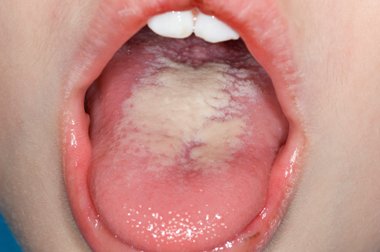Overview

A sore or white tongue isn't usually serious and is often easily treated.
Things you can do yourself
Do:
- use a soft toothbrush to brush your teeth
- brush your tongue or use a scraper to help improve a white tongue
- use a straw to drink cool drinks
- take paracetamol or ibuprofen
Don't:
- do not use a toothpaste that contains sodium lauryl sulphate
- do not eat hard, spicy, salty, acidic or hot food and drink that may irritate your tongue
- do not smoke
- do not drink alcohol
You can ask a pharmacist about:
- what's causing your sore or white tongue
- if you can buy anything to help with any pain or irritation
- if you should see a dentist or GP
Find a local pharmacy here.
See a GP or dentist if you:
- have pain or itchiness that does not go away or gets worse
- have white patches on your tongue
Common causes of a sore or white tongue
Biting or burning your tongue with hot food or drink can cause pain and swelling. But this should only last a few days.
A white tongue can be a sign of a health condition.
Don't self-diagnose - see a GP if you're worried.
Lichen planus
White patches on the tongue and inside the cheek, with sore gums.
Read about lichen planus
Leukoplakia
White, raised patches on the tongue, inside of the cheeks, or on the gums, that do not come off when you rub them.
Read about leukoplakia
Geographic tongue
Blotchy, red patches on the tongue that have a white or light-coloured border.
Read about geographic tongue
Mouth ulcer
Round, painful and swollen sores that look like blisters and can appear on the tongue, inside of the cheeks, or on the lips.
Read about mouth ulcers
Oral thrush
Itchy, red mouth with white patches on the tongue.
Read about oral thrush